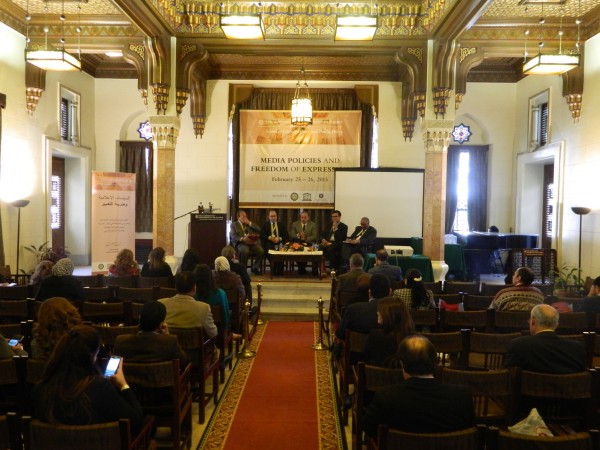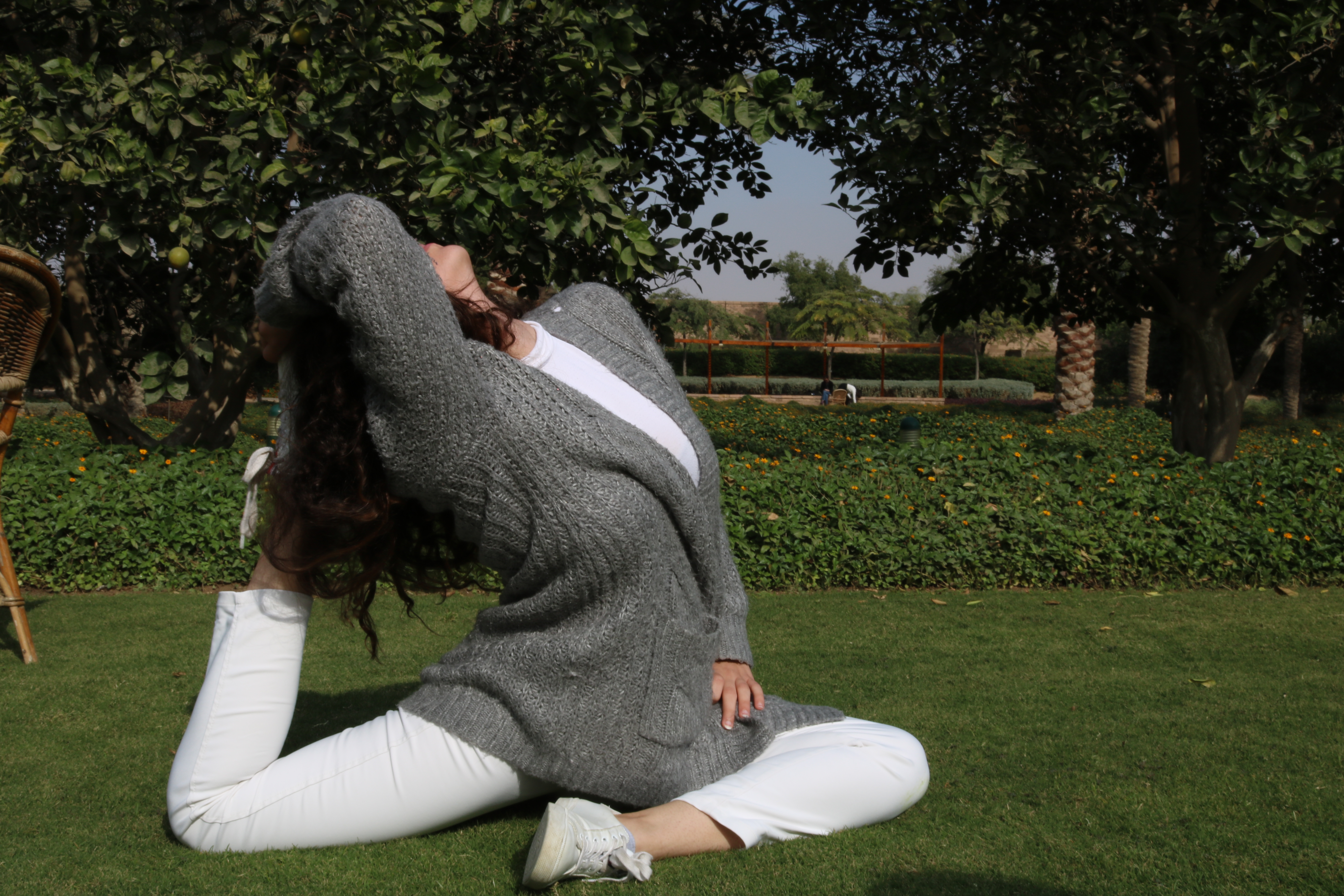Seminar debates policies on freedom of expression

There have been significant media policy shifts in the Middle East and North Africa in recent years, particularly in the wake of the socio-political changes that have swept the whole region.
Last week, a conference hosted in AUC’s Tahrir Campus examined existing and future media policies and the prospects of freedom of expression in Egypt and the region.
“We are looking forward to presenting new ideas on these topics which won’t be a repeat of previous [discussions],” Hussein Amin, Journalism and Mass Communication Professor and Conference Chair, said in the opening session on February 24.
Over the course of two days, the conference showcased heated debates over the quality of the media’s output, and the criteria of content shown today by Egyptian media. Most presentations urged the government to implement a list of media guidelines, while some called on full, unfettered freedom of expression.
Dean of Global Affairs and Public Policy and one of the speakers Nabil Fahmy acknowledged the multitude of views on future media policy but said there were two that stood out.
The first view supports regulation that aspires to achieve a balanced media; the second view considers media policies to be forms of control and censorship.
“There is a huge debate about information policies, media policies and freedom of expression.
How do you ensure that you are preserving expression? How at the same time do you have rational mature media policies that encourage good journalism, good media professionalism and don’t allow for excesses that are detrimental to society and detrimental to security,” said Fahmy.
Fahmy told The Caravan that choosing one position over the other won’t solve the debate – it’s not “either or”.
“You cannot have serious journalism without freedom of information and freedom of expression.”
In Egypt, Article 72 of the new Constitution says that “the State shall ensure the independence of all State-owned press institutions and media outlets, in a manner ensuring their neutrality and presentation of all political and intellectual opinions and trends as well as social interests and also guaranteeing equality and equal opportunities in addressing public opinion”.
Hassan Ali, Chair of the Department of Mass Communication at El Minya University, believes that there also needs to be a measure to protect the media consumer.
He pointed to the establishment of an organization initially created in 2011 – The Audience Protection Organization – which he believes would ultimately raise the quality of the media’s content.
“The audience should be granted the right of knowing the true information and protected from the ongoing spread of rumors,” Ali said on the second day of the conference in Tahrir.
He said it must be kept in mind that children might be in the room while a talk show airs a graphic and violent Islamic State video.
Ali went on to decry the standard of broadcasts in Egypt which leave the average viewer susceptible to television anchors who use profanity on air, and talk shows that make money by interviewing people who are seemingly ‘possessed by evil spirits’.
“Such content brain washes the audience and affects them negatively in every way possible,” he said.
Hannan Youssef, professor of Mass Communication at Ain Shams University, things one way to get anchors and TV stations to adhere to ethical guidelines is to slap strict government or Radio and Television Union penalties on those who cross the line or “pollute the media with inaccurate information”.
Youssef stressed the fact that there should be a strict penalty implemented by the government or by the Radio and Television Union for those who do not abide the true guidelines of journalism, and an even stricter penalty for those who pollute the media with inaccurate information.
“Media schools teach us how to be valid and reliable but everyone does exactly the opposite of what they have been taught,” said Youssef.
Currently, Article 211 of the new Constitution holds the Supreme Council for the Regulation of Media, an independent entity, responsible for guaranteeing and protecting of developing the controls and criteria necessary to ensure compliance by the press and media outlets with the professional and ethical standards, and national security needs as stated in the law.
But both Hafez El-Mirazi – Director of the Kamal Adham Center for Television and Digital Journalism at AUC – and Gamal El Shaer – head of Broadcast Training Institute at the Egyptian Radio and Television Union – questioned how Egyptian media could ever become independent when channels bow to the whims of their owners, failing to keep the audience – and the messages it is receiving – as the first priority.
The dialogue’s main focus was on creating a democratic Egyptian media regime. Suggestions included terminating all governmental newspapers to prevent government interference with freedom of speech, employment of staff solely based on high levels of qualification, and the establishment of a jury responsible for media related crimes.
audience that all the topics and points discussed will be put together in a document organized by the United Nations Organization for Education, Science, and Culture (UNESCO).
One of the attendees, Yehia Shukkir a Jordanian media expert, pinpointed the lack of government representatives in the conference. “They should be invited to hear. We don’t want remote dialogue just between scholars,” he mentioned that most of the conference attendees are experts, media professors or media activists, but “where’s the government?” he added.
“It is not sufficient, you must invite from the government itself to see, to benefit from the conference. It is not enough just to send the recommendations or the booklet two months later to them.”



